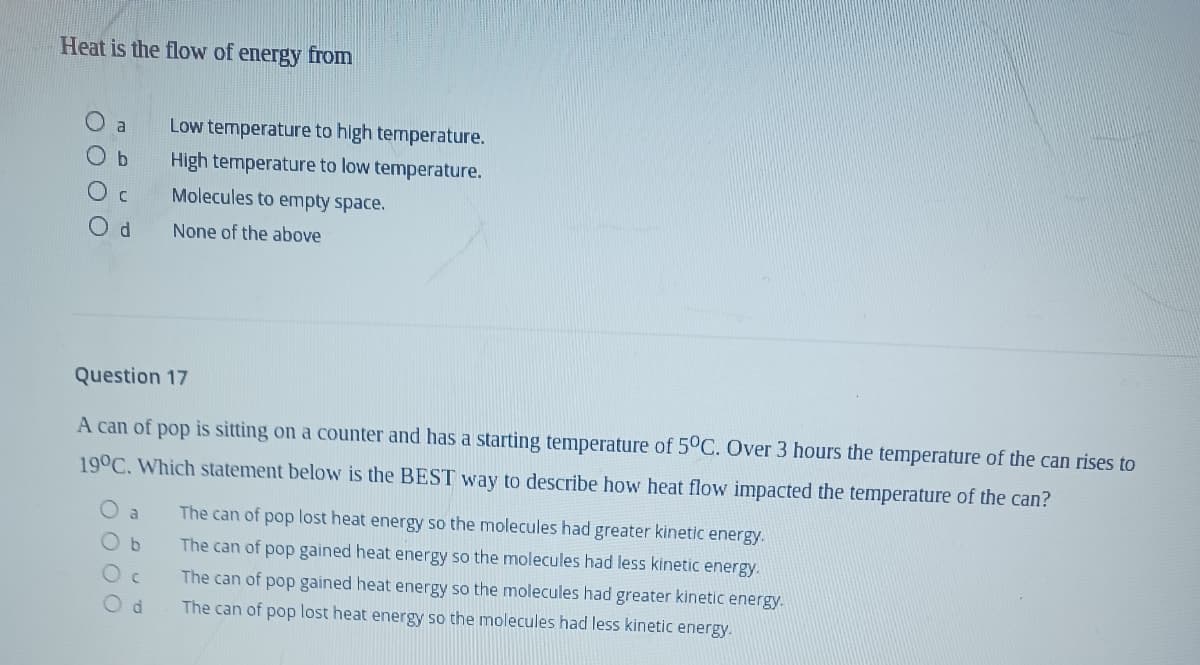Heat is the flow of energy from Low temperature to high temperature. Ob High temperature to low temperature. Molecules to empty space. None of the above Question 17 A can of pop is sitting on a counter and has a starting temperature of 5°C. Over 3 hours the temperature of the can rises to 19°C. Which statement below is the BEST way to describe how heat flow impacted the temperature of the can? O a The can of pop lost heat energy so the molecules had greater kinetic energy. O b The can of pop gained heat energy so the molecules had less kinetic energy. The can of pop gained heat energy so the molecules had greater kinetic energy. The can of pop lost heat energy so the molecules had less kinetic energy.
Thermochemistry
Thermochemistry can be considered as a branch of thermodynamics that deals with the connections between warmth, work, and various types of energy, formed because of different synthetic and actual cycles. Thermochemistry describes the energy changes that occur as a result of reactions or chemical changes in a substance.
Exergonic Reaction
The term exergonic is derived from the Greek word in which ‘ergon’ means work and exergonic means ‘work outside’. Exergonic reactions releases work energy. Exergonic reactions are different from exothermic reactions, the one that releases only heat energy during the course of the reaction. So, exothermic reaction is one type of exergonic reaction. Exergonic reaction releases work energy in different forms like heat, light or sound. For example, a glow stick releases light making that an exergonic reaction and not an exothermic reaction since no heat is released. Even endothermic reactions at very high temperature are exergonic.

Step by step
Solved in 5 steps









